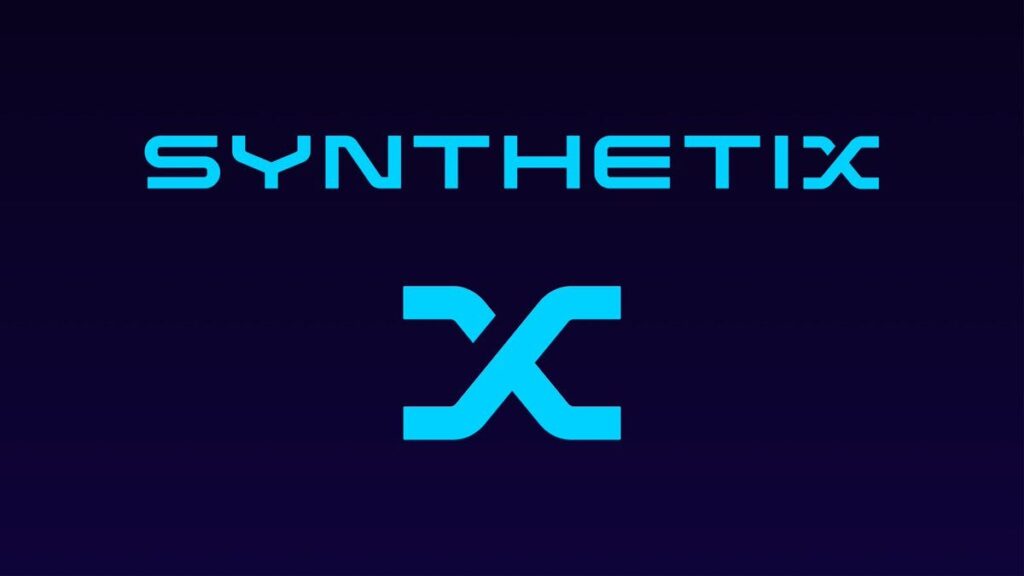Crypto venture capital firms Polychain Capital and Coinfund have collectively raised over $350 million in funding.
Polychain Capital secured $200 million for its fourth investment fund in a recent “first close,” signaling that agreements have been made with investors and the funding process for startups and projects can begin.
Although the firm still aims to raise a total of $400 million for the fund, it has shifted its investment priorities and consequently had to release three members of its research team.
Polychain Capital currently manages three funds with approximately $2.6 billion in assets under management, as per Pitchbook data.
Despite a decline in venture capital funding for crypto projects over the past year, Coinfund managed to raise $152 million for its fourth seed fund.
The CEO, Jake Brukhman, initially targeted $125 million but exceeded expectations by attracting an additional $27 million due to renewed interest in the industry.
However, overall venture funding for crypto and Web3 startups has seen a 76% decrease compared to the same period last year, according to data from Crunchbase.
READ MORE: PEPE Coin in Trouble? Financial Regulator Clamps Down On Crypto Memes
Investors have become cautious in the wake of high-profile project failures, such as Do Kwon’s Terra Money ecosystem and Sam Bankman-Fried’s FTX.
Consequently, venture capitalists have shifted their focus towards more traditional market sectors, resulting in reduced investments across the board, except for the flourishing field of artificial intelligence.
The AI industry, in particular, has attracted significant attention from investors, with over $12 billion in venture funding pouring in since January 1.
Recognizing the immense potential and growth prospects in the nascent AI sector, investors have been eager to capitalize on this emerging field.
The recent fundraising achievements by Polychain Capital and Coinfund demonstrate that, despite the overall decline in crypto venture capital funding, there are still notable exceptions where funds are successfully raised.
The shifting investment landscape and cautious approach of venture capitalists highlight the need for careful evaluation and scrutiny of potential projects in the crypto sector.
Meanwhile, the AI industry continues to be a focal point for investors, indicating their ongoing interest in technological advancements and disruptive innovations.
Other Stories:
FSB Proposes Global Regulatory Framework for Cryptocurrencies
Celo Blockchain Plans Transition to Ethereum Layer-2 Solution
SEC Chair Gary Gensler Advocates Greater Use of Artificial Intelligence for Market Surveillance
Bitcoin’s performance in the second quarter of 2023 has been strong, with its market dominance increasing against altcoins that experienced losses during the period, as reported by CoinGecko.
The crypto data aggregator released its Q2 industry report on July 18, revealing that Bitcoin (BTC) and Ether (ETH) continued to build on their gains from the previous quarter.
While Bitcoin and Ether made progress, other cryptocurrencies suffered double-digit losses.
Binance Coin (BNB), XRP, and Cardano (ADA) were among the hardest hit. BNB and ADA were particularly affected due to their classification as securities in lawsuits against Binance and Coinbase filed by the Securities and Exchange Commission.
The decentralized finance (DeFi) sector also took a hit, with tokens like Uniswap (UNI), Chainlink (LINK), and Lido (LDO) experiencing significant losses.
Metaverse and play-to-earn tokens, including Axie Infinity (AXS), Sandbox (SAND), and Decentraland (MANA), also faced losses of up to 40%.
Bitcoin’s dominance reached a two-year high of over 52% in late June but subsequently dropped below 50% due to an altcoin rally fueled by Ripple’s partial court victory.
READ MORE: PEPE Coin in Trouble? Financial Regulator Clamps Down On Crypto Memes
However, most altcoins that had gained following the XRP pump lost their gains, returning the market to its pre-ruling state.
CoinGecko’s report highlighted that the total market capitalization remained relatively stable throughout the quarter, starting and ending at $1.2 trillion.
As the third quarter began, the market cap remained unchanged at $1.2 trillion.
Bitcoin emerged as the winner of the period, outperforming the rest of the market with a gain of nearly 7%.
However, the average daily trading volume for BTC declined by 58.7% compared to the previous quarter.
Despite this decline, the report stated that Bitcoin still outperformed most major asset classes in Q2, trailing only behind the NASDAQ and S&P 500.
With most altcoins, except for XRP, currently experiencing a retreat, the prospects for an early “altseason” are diminishing. Bitcoin continues to maintain its position as the dominant cryptocurrency in the market.
Other Stories:
Celo Blockchain Plans Transition to Ethereum Layer-2 Solution
SEC Chair Gary Gensler Advocates Greater Use of Artificial Intelligence for Market Surveillance
FSB Proposes Global Regulatory Framework for Cryptocurrencies
CLabs, the organization behind the development of the Celo blockchain, is planning to make a significant move by transitioning from its independent EVM-compatible layer-1 blockchain to an Ethereum layer-2 solution.
This shift back to the Ethereum ecosystem is aimed at leveraging the benefits of the OP Stack architecture and enabling Celo developers to access the full range of Ethereum tooling and libraries more easily.
The proposed transition includes several key elements. Firstly, an off-chain data availability layer, operated by Ethereum node operators and protected by restaked Ether (ETH), would be established.
This would enhance the security of the network while maintaining low gas fees. The current validators would also be transformed into decentralized sequencers for the layer-2 solution.
Layer-1 and Layer-2 blockchains differ in purpose and design. Layer-1 networks are self-sufficient, while Layer-2 solutions are designed to improve the performance of Layer-1 blockchains rather than operate independently.
Read our crypto PR agency guide
The benefits of this transition, as outlined in the proposal, include increased security and the potential for lower gas costs compared to other layer-2 solutions.
The proposal will be discussed on a governance call on July 21 and subsequently released for a “temperature check” the following day.
Adopting this proposal would not affect end-users or CELO tokenholders, who would retain control over core contracts through voting on governance proposals. CELO tokens would also continue to be used for gas payments.
While the transition appears to be primarily a technical upgrade, it could have various implications for the Celo ecosystem.
On one hand, it may facilitate increased liquidity flow between Celo and other chains. On the other hand, it could impose additional costs on sequencers, including fees on the data availability layer and gas on the Ethereum network.
The potential impact on sequencers’ rewards compared to current validators’ rewards remains uncertain.
Celo has been focusing on improving its mobile experience and incorporating enhanced functionality and specific features to cater to the needs of developing economies.
By aligning with Ethereum’s layer-2 solution, Celo aims to enhance its capabilities while continuing to serve as a technological payment solution in these economies.
In an increasingly competitive blockchain landscape, this move by CLabs demonstrates their commitment to innovation and their recognition of the advantages offered by Ethereum’s layer-2 solutions.
Other Stories:
ARK Invest Sells More Coinbase Shares, Expands Investments in Meta Platforms and Robinhood
Synthetix Expands DeFi Offering with Introduction of Infinex Derivatives Exchange
Investor Spends $1.04 Million on PEPE Coin as Ripple CEO Criticizes SEC in Landmark Case
National Australia Bank (NAB) has become the latest major bank in Australia to take action against certain cryptocurrency platforms due to the high risk of scams in the industry.
NAB announced a series of measures on July 17 as part of its “bank-wide scam strategy” to protect customers from fraud.
In addition to stopping millions of dollars in payments between March and July 2023, NAB will implement blocks on “some cryptocurrency platforms” to safeguard customers from scams.
While the specific exchanges were not mentioned, NAB’s executive for group investigations and fraud, Chris Sheehan, stated that the blocks would be imposed on “high-risk” platforms where scams are more prevalent.
Sheehan highlighted the involvement of organized transnational crime groups in cryptocurrency scams, explaining that these criminals are increasingly using cryptocurrency platforms to quickly send stolen funds overseas.
READ MORE: Aave Launches GHO Stablecoin on Ethereum Mainnet
It has been suggested that the cryptocurrency exchange Binance may be affected by NAB’s crypto blocks.
Sheehan indicated that NAB’s approach would align with the rest of the industry, following reports that other major Australian banks, including Westpac and the Commonwealth Bank, have already blocked payments to Binance.
Neither NAB nor Binance provided immediate comments in response to inquiries from Cointelegraph.
NAB reiterated the prevailing narrative among local banks, claiming that nearly 50% of scam funds reported in Australia are linked to cryptocurrency.
The bank emphasized that cryptocurrency scams pose one of the fastest-growing security threats, with Australians losing over $221 million to such scams last year.
In support of their measures, NAB cited a survey indicating that 40% of Australians are willing to accept slower payments if it means better protection against scammers.
As of now, NAB’s decision to block certain cryptocurrency platforms stands, but further information and updates are expected as the situation develops.
Other Stories:
3 Best Crypto PR Agencies – Fees, Results and Full Review
Primed For Major BTC Rally? SEC Begins Review of BlackRock’s Bitcoin ETF Application
Binance Integrates Bitcoin Lightning Network for Lightning-Fast BTC Transactions
Multichain, a Chinese decentralized cross-chain bridge protocol, recently announced its closure after the arrest of its co-founder and CEO, Zhao Jun, and his sister.
Zhao Jun, the alleged sole holder of the private keys to over $1.5 billion in users’ cryptocurrencies stored on Multichain, was reportedly arrested in May, although this information was not initially disclosed by the protocol’s staff.
In late May, Multichain users reported delays in receiving funds, to which the admins attributed a backend node upgrade.
Co-founder Alfred Xu attempted to dispel rumors and assure users that operations were proceeding normally.
However, concerns escalated when it was revealed that Zhao Jun was unreachable, leading to suspicions of a hack or inside job.
On July 7, users discovered unauthorized withdrawals amounting to over $100 million from Multichain’s Fantom Ethereum bridge and other sidechains.
Tether and USD Coin froze around $65 million after the transactions sparked fears of a hack.
READ MORE: Ex-Federal Prosecutor Surprised by Potential SEC Appeal in Ripple Case
Developers found evidence suggesting abnormal transfers of user assets and discovered that Zhao Jun’s sister had moved the remaining assets to her controlled addresses as an “asset preservation action.” Subsequently, Zhao Jun’s sister was also arrested.
The arrest of Zhao Jun and his sister has left Multichain in disarray, as they were the only ones with access to operational funds, user assets, servers, and even the project’s website.
With no access to crucial resources, the project’s development team can no longer function effectively.
The reasons behind Zhao Jun’s arrest and the charges against him remain unknown, but under Chinese law, seized funds may be considered proceeds of crime, potentially leading to their seizure by the state. Multichain’s users now face uncertain prospects, and the platform’s TVL (Total Value Locked) has plummeted to $139 million.
In a separate incident, cryptocurrency exchange Binance faced its own challenges. On its sixth anniversary, Binance announced layoffs of up to 1,000 employees, primarily in the global and customer service sectors, as part of ongoing reorganization.
The exchange attributed the layoffs to the challenges posed by an ongoing U.S. Department of Justice investigation.
Binance’s CEO, Changpeng Zhao (CZ), responded to the layoffs by stating that the company was still hiring and that the numbers reported by the media were exaggerated.
However, on July 17, it was reported that Binance had stopped employee reimbursements for various expenses, citing the current market environment, regulatory climate, and the need to reduce expenses.
Binance is currently engaged in litigation with the U.S. Securities and Exchange Commission and the U.S. Commodities and Futures Trading Commission over allegations of offering unregistered securities and operating an unregistered exchange in the U.S.
Both Multichain and Binance’s recent troubles highlight the risks and challenges faced by cryptocurrency projects and exchanges, emphasizing the need for transparency, security, and regulatory compliance in the industry.
Other Stories:
3 Best Crypto PR Agencies – Fees, Results and Full Review
Bitcoin On-Chain Data Reveals $30,000 as Most Popular ‘Buy’ Level
Web3 Needs Asset Protection, and This Startup Wants to Make it Widely Available
The crypto space is rife with phishing scams, fraud, and hacks, making it incredibly dangerous and tough to navigate for the newbies. This problem affected banks and traditional institutions as well, until deposit insurance came to the rescue. Now, a new startup called FairSide wants to bring the same peace of mind to crypto asset holders.
The latest crypto winter of 2022 was particularly rough on regular users, as they had to navigate half a dozen major bankruptcies and exchange collapses. Companies like Celsius, BlockFi, Babel Finance, who promised their users consistent yield on their crypto, fell like dominoes in a systemic solvency crisis. The sudden crash of FTX in November 2022 helped break a decade-old record for the largest value of crypto lost in fraud or hacks in a year.
Self-custody might seem like the obvious solution, but it’s also a path fraught with peril. Phishing attacks in crypto can be incredibly sophisticated, going as far as using advanced deepfakes of important people. Over $2 million in NFTs gets stolen from users in phishing attacks and exploits every month. Software wallets can get compromised by viruses, SIM swaps, or physical break-in. And even if the user avoids all targeted attacks, catching a DeFi hack is very likely.
Web3 and crypto can be exciting, and offer the opportunity for making outsized returns, but that’s because the risk of losing it all is immense. Insuring assets could alleviate many of these risks, just like the FDIC insurance program did in 1933 for bank deposits.
Unfortunately, asset coverage in crypto has been lacking so far. There are a number of DeFi “insurance” projects protecting against hacks in a particular protocol, but their coverage is limited, and there are several instances of them refusing to honour their claims because of technicalities. In any case, no insurance coverage exists for individual hacks and scams.
FairSide aims to introduce a true safety net to the Web3 space, focusing on all the issues that could result in tokens and NFTs getting stolen, including phishing, man-in-the-middle attacks, clipboard hijacking, local frontend hacking and many others.
The FairSide system provides what the team calls “Blanket Coverage” to cover all possible instances of personal crypto theft. The coverage costs 1.95% of the user’s wallet value per year, and it can secure up to 100 ETH per wallet, currently worth about $190,000 — quite close to the FDIC’s $250,000 insurance limit. Compared to other forms of coverage in crypto, the fixed premium makes for much more predictable returns at a fairly low price.
The program lasts for a full year, is fully cross-chain and applies for any type of personal wallet including MetaMask, Ledger and others. For now, FairSide doesn’t provide general coverage against hacks for a particular DeFi or NFT protocol, given that it’s a more complex model targeted mostly at high net worth individuals.
A protocol where anyone can become the insurer
FairSide’s vision is to provide coverage for the regular people, and it allows anyone to stake their assets to receive fee proceeds from the insurance premiums.
This is a major advance allowed by Web3. Traditional companies need to bootstrap a huge amount of capital to ensure that they don’t get bankrupted by a bad year where everyone submits claims. But with DeFi staking, it’s possible to easily bootstrap the reserve through the community by sharing some of the fees collected for the service.
In FairSide’s case, the staking is powered by a combination of the platform’s FSD token and ETH, which are tied together in a pool following a special bonding curve. Its goal is to modify the price and liquidity of FSD based on the protocol’s demand for capital.
When the protocol is well-capitalized, the curve will adjust to increase the price of FSD in ETH and disincentivize staking more capital. When the protocol needs more capital, the curve will instead lower the price of FSD. Unlike regular DEX pools, the system directly mints a matching amount of FSD when staking ETH, which is given back to the user as a representation of their ETH.
There are additional FSD staking benefits, including membership fees, and “strong hands” rewards, where users who have staked the longest receive the most rewards, which is useful to maintain a stable level of liquidity in the insurance pool.
Coverage as the key to tame the crypto Wild West
With stories of hacks and fraud saturating the popular perception about crypto, there won’t be a new bull cycle until people can feel safe when interacting with crypto. Self-custody is important, but very few people are willing to put in the work required to do it safely (for example, using air-gapped computers).
There are some ways to protect against DeFi hacks, but with the bear market, the general DeFi yield is not enough to justify the risks incurred. For example, Sherlock, an auditing platform providing a “warranty” for its audits, is reportedly running near empty on its reserves following a couple of incidents.
Better security practices, and potentially regulation for centralized entities, is bound to improve the situation at a general ecosystem level. But the individual dangers of self-custody will always remain, which is why FairSide may be the key to a general solution to this problem.
The United States Securities and Exchange Commission (SEC) has started reviewing BlackRock’s application for a Bitcoin spot exchange-traded fund (ETF), one day after acknowledging Bitwise’s similar submission.
This preliminary step marks the SEC’s readiness to evaluate the feasibility and market impact of a Bitcoin spot ETF, despite being the first phase of a complex regulatory process.
Exchange-traded funds or ETFs are investment products that often track specific indexes, and in the crypto context, they replicate the value of one or more digital assets and comprise a range of cryptocurrencies.
The SEC stated on July 14 that it’s reviewing multiple fund applications, including those from Wise Origin Bitcoin Trust, WisdomTree, VanEck, and Invesco Galaxy.
The financial industry considers BlackRock’s move to apply for a Bitcoin spot ETF noteworthy, given its market standing.
READ MORE: ARK Invest Sells More Coinbase Shares, Expands Investments in Meta Platforms and Robinhood
The application includes an agreement for surveillance-sharing with Coinbase, a leading cryptocurrency exchange.
The ongoing competition to debut a Bitcoin ETF in the U.S. is viewed positively in the crypto sector.
With several applications in progress, the likelihood of approval increases, as the SEC can evaluate diverse strategies and considerations.
Despite the developments, the SEC has not yet approved a Bitcoin spot ETF within the U.S. Meanwhile, Canada has already greenlit this type of financial product.
Purpose Bitcoin, 3iQ CoinShares, and CI Galaxy Bitcoin are three substantial funds that have received regulatory approval in Canada.
Other Stories:
Synthetix Expands DeFi Offering with Introduction of Infinex Derivatives Exchange
Eeon Intervenes in SEC Lawsuit Against Binance, Seeks Representation for Customers
Investor Spends $1.04 Million on PEPE Coin as Ripple CEO Criticizes SEC in Landmark Case
Synthetix, a decentralized finance (DeFi) protocol, is set to expand its product offerings with the introduction of a new derivatives front-end called Infinex.
The upcoming exchange aims to provide a decentralized trading infrastructure that caters to both novice and experienced traders, offering features similar to centralized exchanges (CEX).
This move is in response to the key issues identified with the current platform, Kwenta, a derivatives decentralized exchange (DEX) operating on Optimism.
Kain Warwick, the founder of Synthetix, highlighted some of the challenges faced by traders on the current platform.
Users are required to bridge their assets to the layer-2 rollup and exchange them for sUSD, Synthetix’s stablecoin used as margin collateral, before they can begin trading.
Additionally, every order or cancellation on the platform incurs a small fee due to the need for the trader’s wallet signature.
Warwick emphasized that the goal of Infinex is to address these issues and eliminate any doubts about the ability of decentralized perpetuals (Perps) to compete with centralized exchanges.
READ MORE: Coinbase Temporarily Suspends Staking Services
Warwick also pointed out the advantages of a noncustodial decentralized exchange, playfully mocking centralized exchanges like FTX for their counterparty risks.
He highlighted the dramatic collapse of FTX in 2022 as an example.
Infinex aims to offer a user-friendly experience for traders familiar with platforms like Binance.
It will provide access through a simple username and password, while still maintaining a noncustodial setup.
Each user will be assigned a unique public-private key pair generated by Infinex, which will be stored locally in the browser.
These keys will be used solely for signing trade orders and not for fund withdrawals.
While the technical implementation details of Infinex were not disclosed, Warwick mentioned that they were entrusted to the core developers.
The launch of the new DEX is expected to coincide with the release of Synthetix’s version three of its perpetual futures trading system, which is scheduled for the coming months.
With the introduction of Infinex and the improvements to its derivatives trading system, Synthetix aims to address the existing limitations and provide a more seamless and efficient trading experience for its users.
By combining the benefits of decentralized finance with features typically associated with centralized exchanges, Synthetix aims to further establish itself as a leading player in the DeFi space.
Other Stories:
Bitcoin Long-Term Holders Return as BTC Price Surges
SEC Stresses Crucial Clarification Amid Coinbase Battle
Cardano Surges 23.9% Following Favorable XRP Ruling, Investors Eye Further Gains
Coinbase, the popular cryptocurrency exchange, has been hitting new highs in the stock market, prompting ARK Invest, the investment management firm led by renowned investor Cathie Wood, to sell off more of its shares in the company.
This marks the second time in a week that ARK Invest has divested a portion of its Coinbase holdings.
At the same time, Wood’s firm has been actively investing in other companies like Meta Platforms and Robinhood Markets.
Recent trading data obtained by Cointelegraph reveals that on July 14, ARK Invest sold a total of 478,356 Coinbase shares, valued at around $53 million.
This sale coincided with Coinbase’s 52-week high of $114.43 per share.
The transactions included the sale of 263,247 Coinbase shares by ARK Innovation ETF, 93,227 shares by ARK Next Generation Internet ETF, and 35,666 shares by ARK Fintech Innovation ETF.
In June, Wood’s firm initiated purchases of Meta Platforms shares following the announcement of the launch of Threads, a social media app similar to Twitter.
ARK Innovation ETF acquired 69,793 Meta shares, while ARK Fintech Innovation ETF purchased 111,843 shares of Robinhood.
READ MORE: Bitcoin Long-Term Holders Return as BTC Price Surges
Furthermore, ARK Next Generation Internet ETF increased its holdings with 12,559 Meta shares and 169,116 Robinhood shares.
As of Friday, according to CoinMarketCap, Coinbase’s closing stock price was $105.31, experiencing a 1.58% decline as investors took profits.
Throughout the week, the price surged by 33%, reaching a 24-hour high of $114.43, indicating a year-to-date increase of 213%.
Alongside the general upward trend in crypto-related stocks, Coinbase received a boost from a summary judgment in the United States Securities and Exchange Commission vs. Ripple lawsuit.
This recent sale by ARK Invest follows previous divestments.
On July 11, Wood’s ARK Innovation ETF sold 135,152 Coinbase shares worth $12 million, and in March, ARK Fintech Innovation ETF sold 160,887 Coinbase shares.
ARK Invest’s moves in the cryptocurrency and technology sectors continue to attract attention, and investors closely follow their investment decisions.
As the market dynamics evolve, it will be interesting to observe how ARK Invest adjusts its portfolio and identifies potential opportunities in the ever-changing landscape of digital assets and emerging technologies.
Other Stories:
SEC Stresses Crucial Clarification Amid Coinbase Battle
Coinbase Temporarily Suspends Staking Services
Cardano Surges 23.9% Following Favorable XRP Ruling, Investors Eye Further Gains
United States Senator Cynthia Lummis has taken to Twitter to stress the importance of a recent court ruling by Judge Analisa Torres, which determined that Ripple’s XRP token should not be classified as a security when traded on digital asset exchanges.
Lummis used this ruling as a platform to emphasize the urgent need for Congress to establish a comprehensive and unambiguous regulatory framework for cryptocurrencies.
Lummis highlighted the significance of the court ruling and its implications for cryptocurrency regulation.
She emphasized that this verdict underscores the immediate necessity for Congress to create a robust crypto framework that prioritizes the protection of consumers.
As a long-time proponent of Bitcoin, Senator Lummis also underscored the importance of a transparent cryptocurrency framework that safeguards investors and fosters innovation in the crypto industry.
Furthermore, Lummis stressed the importance of maintaining the Howey test, which is the legal standard used to determine whether an investment qualifies as a security.
READ MORE: Cardano Surges 23.9% Following Favorable XRP Ruling, Investors Eye Further Gains
She specifically mentioned the Responsible Financial Innovation Act, also known as the Lummis-Gillibrand bill, a legislative initiative co-introduced by herself and Senator Kirsten Gillibrand.
The purpose of this bill is to provide clarity and establish regulatory guidelines for digital assets, aligning them with the interpretation of the Howey test.
Lummis’s call for congressional action carries significant weight, particularly given the wide-ranging implications of the legal dispute between Ripple Labs and the U.S. Securities and Exchange Commission.
The outcome of this case could set a precedent that shapes the regulatory landscape for digital assets in the United States.
The absence of well-defined guidelines leaves entrepreneurs and investors in a state of uncertainty, hindering innovation and economic growth.
While it remains uncertain how Congress will address Lummis’s plea for regulatory clarity in the cryptocurrency market, her efforts indicate an increasing recognition among lawmakers that the crypto industry requires a progressive regulatory strategy to unlock its full potential.
Other Stories:
Bitcoin Long-Term Holders Return as BTC Price Surges











